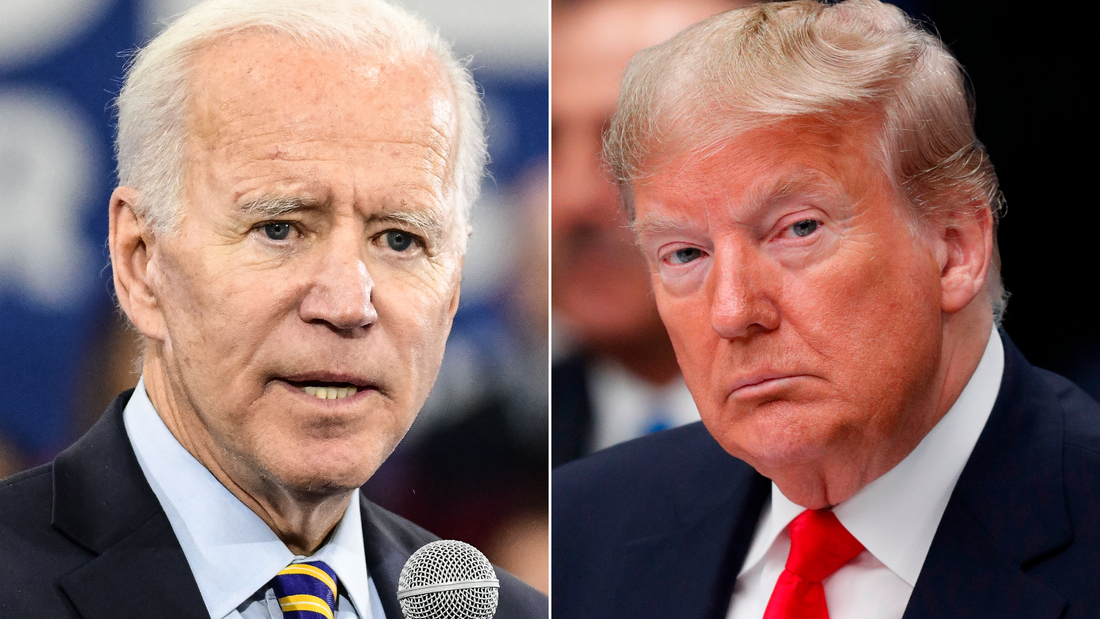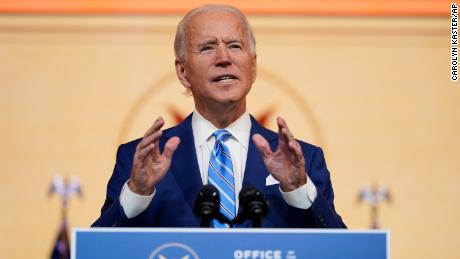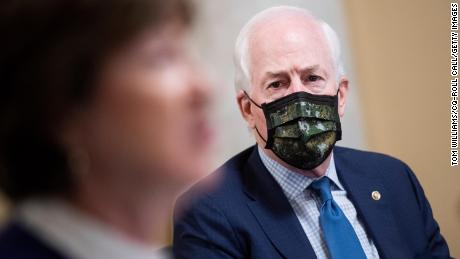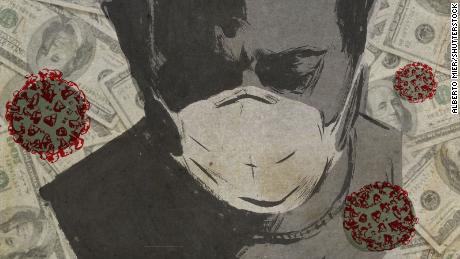The federal government and Congress are effectively AWOL, leaving millions to fend for themselves in the midst of a medical and economic catastrophe
In this weird interregnum between Biden’s victory and Trump’s departure, the lame-duck President and the incoming one have taken remarkably, if unsurprisingly, different paths.
Trump is wrapped around the axle of his delusional bid to claw back a presidency that is receding from his grasp with each passing day. He lurches between grievance and pipe dreams, with no thought for the destruction in his path. Biden, operating in the world as it exists, has been scrupulously building a government-in-waiting. And in the two days since a Trump-appointee allowed the formal transition to begin, Biden’s team has begun to examine the rusted nuts and bolts of the beleaguered institutions he will inherit.
Biden’s reality and Trump’s fantasies collided on Thanksgiving eve.
Afterward, Trump invited the Pennsylvania Republicans to the White House for a West Wing meeting, two sources told CNN. It is a reprise of a gambit the President tried with two leading Michigan GOP state lawmakers, who visited Washington last week, for a debriefing the President hoped would yield more fuel for his baseless claims of election fraud. But he received none and the Republicans quickly released a statement afterward affirming the truth — that they had “not yet been made aware of any information that would change the outcome of the election in Michigan.”
Galaxies away
“I know the country’s grown weary of the fight. But we need to remember, we’re at war with the virus, not with one another. Not with each other,” Biden said. “This is the moment where we need to steel our spines, redouble our efforts and recommit ourselves to the fight.”
As he did during the campaign, Biden channeled his own grief — at the loss of his first wife and infant daughter in 1972, and his son’s death from brain cancer a little more than five years ago — in a bid to soothe mourning Americans.
“It’s really hard to care,” Biden said of the breathtaking sight of an “empty chair” where a loved one once sat. “It’s hard to give thanks. It’s hard to even think of looking forward, and it’s so hard to hope. I understand. I’ll be thinking and praying for each and every one of you at this Thanksgiving.”
Earlier in the day, future first lady Jill Biden was spotted dropping off bags of goods at a food bank in Rehoboth Beach, Delaware, where the Bidens are spending the holiday. The small gesture underscored the vast challenges facing so many, their lives financially devastated by the pandemic, who have turned to increasingly strained charitable organizations to temporarily satisfy basic needs.
“No one should go hungry in America,” she added.
Kellie O’Connell, the CEO of Lakeview Pantry in Chicago, described the pained scenes as hard-hit families come for help, many for the first time.
Describing a family of four who had exhausted their savings, O’Connell spoke to CNN’s Brooke Baldwin about the feelings of shame that often accompany having to ask for help.
“They came to us to be able to put food on their table this Thanksgiving,” she said. “One of the parents stayed in the car because they were a little bit embarrassed about how they were getting food. And, so that’s really tough.”
The growing lines outside food banks have become a bitter hallmark of this wretched season.
Congress still stalled on relief package
On the horizon: more pain. An estimated 12 million people will lose the expanded unemployment benefits provided by a federal relief package passed back in March. Prospects for a second round of federal stimulus in the near future seem bleak. There is a government funding deadline a few weeks away, which could provide an opportunity for lawmakers to budget some new aid. But a Democratic-backed House stimulus first passed in May, then updated at the beginning of October, is languishing.
Republican Senate Majority Leader Mitch McConnell refused to take it up and House Speaker Nancy Pelosi has so far refused to consider smaller, piecemeal legislation. The stalemate has left desperate American workers increasingly adrift and tossed entire industries to the brink.
The absence of a central, organizing figure in the White House has also begun to set off concerns about the processes in place for distributing coronavirus vaccines. In a mirror of the chaos this spring, when local leaders were left to bid against each other for ventilators and personal protective equipment, Illinois’ top state health officer said the federal government had already told her it couldn’t fulfill an initial request of 400,000 doses.
“We are still waiting to see answers, and understand maybe why that is, but it seems that the initial allotment we thought would be ready to go out — that number has decreased,” Dr. Ngozi Ezike told CNN’s Nia-Malika Henderson. “So as a result, all the states are going to get a smaller amount.”
Fighting the surge
With Washington tied up in knots and the coronavirus spreading at record rates, one of the country’s most prominent health care providers, the Mayo Clinic, announced on it was bringing in staff from out of state and asking retirees to return to work fighting the virus surge in Minnesota.
As of 10 p.m. Wednesday, Johns Hopkins University had reported 178,752 new cases nationwide and 2,207 deaths. That followed the more than 2,100 Covid-19-related deaths on Tuesday, then the highest single-day number since May. Public health experts worry that the millions traveling on Thursday to spend time with family — indoors and without protection — will trigger another wave of infections.
“It’s potentially the mother of all superspreader events,” Dr. Jonathan Reiner, a former White House medical team adviser, told CNN this week.
He then proceeded to promote behavior that would further endanger them all.
“I encourage all Americans to gather,” Trump said, “in homes and places of worship, to offer a prayer of thanks to God for our many blessings.”
![]()








